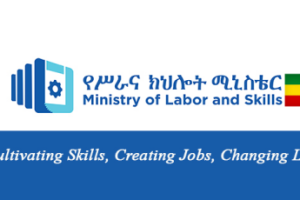
Nutrition is far more than the act of eating or the effort to stave off hunger. It is a dynamic, long-term investment in human development. From a community perspective, nutrition is inherently intergenerational, meaning the dietary patterns and nutritional status of one generation influence the health and well-being of the next. This concept is powerfully illustrated in the Seqota Declaration project, which tackles the root causes of malnutrition through a comprehensive, multisector approach. By addressing food security, health systems, and behavioral change, the project sets a foundation for sustainable progress. Its focus on intergenerational impact promotes positive outcomes not just for individuals, but for families and entire communities creating a ripple effect that spans generations. This model highlights how transformative, scalable initiatives can break the cycle of poor nutrition and build healthier futures.
Nutrition is not only a personal or immediate concern it is an inheritance. The eating habits and nutritional choices of parents deeply influence their children’s food preferences, health outcomes, and lifelong behaviors. Parents who prioritize balanced diets are more likely to instill healthy eating habits in their children, while poor nutrition in one generation can lead to deficiencies and chronic conditions in the next. When families experience undernutrition, the consequences may affect fetal development, childhood growth, and long-term well-being.
Traditional food practices and cultural beliefs about eating are often passed down through generations, shaping perceptions of food and health. This cultural continuity, while rich and meaningful, can either nurture or hinder optimal nutrition depending on the context.
Economic factors also play a role. Families with limited access to nutritious foods may unknowingly perpetuate a cycle of undernutrition and health disparities. Yet, knowledge is power. When nutrition education is shared and valued across generations, it becomes a tool for resilience, empowerment, and long-term change. Building intergenerational nutrition awareness is therefore key to healthier communities and sustainable development.
Nutrition is undeniably the foundation of health and development. As Hippocrates famously stated, “Let food be thy medicine,” highlighting the critical link between what we consume and our overall well-being. While many people tend to rely on medications to improve their health, it is essential to recognize that nutrition plays a more fundamental role. Our bodies react to the food we eat, not just in terms of energy but also in how our cells function and communicate. Essentially, you are what you eat and your health is profoundly influenced by your dietary choices.
In today’s fast- paced urban environment, easily accessible processed foods often displace nutritious options, contributing to a rise in metabolic disorders such as obesity diabetes, and even cancer. The relationship between nutrition and health is not merely about preventing disease: it also involves enhancing our quality of life. Poor nutrition can led to chronic conditions that place significant burdens on health care systems and economies.
Moreover, nutrition has an epigenetic impact, meaning it can influence gene expression and potentially reverse health issues. A nation prioritizing its citizens’ nutrition is investing in its future. Initiatives targeting multi-sectoral approaches to nutrition will yield a healthier, more productive populace. Reduced stunting and lower rates of non-communicable diseases will result in increased workforce productivity and significant economic benefits, with estimates suggesting that every dollar invested in nutrition can yield up to $16 in economic returns. Therefore, prioritizing nutrition is essential for a country’s prosperity and health.
The Sekota project represents a powerful, holistic approach to tackling malnutrition and improving nutrition security in Ethiopia. What makes it truly remarkable is its focus on addressing the root causes of undernutrition poverty, limited access to diverse foods, and weak health systems rather than just treating symptoms. There’s nothing as satisfying as hitting the nail on the head, and that’s exactly what this project does. By integrating nutrition services into existing health care systems, promoting sustainable and diverse agricultural practices, and providing community-based education, the project has significantly reduced stunting, wasting, and micronutrient deficiencies among children and women of reproductive age.
The project’s impact has been felt deeply in communities, where families report improved health, reduced child malnutrition, and increased awareness of nutrition’s role in well-being. Women have taken on leadership roles within households and communities, becoming champions of good nutrition practices. Furthermore, the integration of health and agricultural efforts has led to better farming techniques and fewer preventable illnesses related to poor nutrition.
The Sekota project stands as living proof that strategic, community-centered nutrition interventions can reverse the cycle of disease and malnutrition. Its success is not just in numbers, but in the stories of empowered women, healthier children, and communities that now grow and consume more diverse, nutritious foods.
As we recognize Sekota’s achievements, there is a pressing need to extend this model to urban settings, where hidden hunger and micronutrient deficiencies persist often worsened by the availability of cheap, unhealthy street foods and socioeconomic pressures. Creating urban nutrition-sensitive programs inspired by Sekota’s integrated approach is essential for building a resilient, well-nourished society across both rural and urban Ethiopia.
Dr. Brikti Masresha (MD, MPHN, Clinical Nutrition and Metabolism advocate)
BY BIRIKTI MASRESHA (Dr.)
THE ETHIOPIAN HERALD WEDNESDAY 30 APRIL 2025





